Saturday, February 23, 2008
Saturday School
I arrived at KIPP around 7:50 for classes to start at 8:00. Saturday school is split into 4 hour long periods with a half an hour lunch. I began looking for fun. I wanted to see what else they offered on Saturdays. I asked around to see what was going on and after finding out that 5th grade was reading all morning and 8th grade was holding class as normal, I finally found out that photography, art, and keyboarding classes were offered to 6th and 7th graders. I spent the first two periods with photography. Two members of the community volunteer their time every other Saturday morning to come to KIPP and teach the students about taking and developing pictures. Each student had a small box that was tightly taped shut, but had a pin hole opening on one of the sides. This box served as the camera, very clever. The loaded their 'camera' with a piece of photo paper and then went outside to capture their image. To capture the image, they removed the tape that covered the pinhole and let light leak in for 120 seconds. After the 120 seconds, they covered the pinhole with tape and took their cameras inside to develop their image. The instructor had the students prepare the developing table, assigning students to create the mixture that developed the pictures as well as the mixture that fixed the pictures. The students learned that the chemical to water ratio for each mixture was 1:9. After the developing table was ready, the instructor took 7 students into the dark room to develop the pictures. While we were in the dark room, a make shift closet with a dim red light, the instructor had students one by one remove the tape from their box to get their photo paper out. The students took turns putting their picture from developer to stop bath to fixer to the final wash. It was neat to see the images develop right before your eyes. As each photo developed, the instructor would ask the students if the image was overexposed or underexposed and then how to fix the exposure problem. He explained that very dark or black pictures are overexposed and received too much light while the light pictures were underexposed and didn't receive enough light. After all the images were developed the students reloaded their cameras before leaving the dark room. The instructor went around to each student to help them correct their exposure to make their next photo better. Some of the cameras or boxes were very shallow and so their photos were overexposed and needed less light. After each student had received instruction on how to make their next photo better we all went outside to take another picture and some of the students even had time to develop theirs before the next period. For third period, I played connect four with the 6th graders. It was nice to spend time with them in a relaxed environment. At 11:00, we went to cafeteria to get our Dominoes pizza. When I was finished eating my pizza I went to see what Ms. Starr was up to and we discussed the grade breakdown for the math benchmark her students just took. Only 71% of the students passed the benchmark. 6 received D's and 14 more received F's. This benchmark gave Ms. Starr an opportunity to see what needs to happen before the TAKS in April. 7 of the 14 student's who received F's were speical education students, but since they are not pulled out of the math classroom they must take the same TAKS assessment as students without special needs. This is every fustrating when you are trying to get a high percent of students who pass the TAKS. These students are at a complete disadvantage because most of them have 3rd grade abilities, but are being tested at a 5th grade level. Now if these students were at a public school and were pulled out of the classroom, then they would qualify to take a modified TAKS test. This is one disadvantage about KIPP because they do not have the staff or resources to pull out students with special needs, but there are inclusion teachers who work with the students in the classroom. We tried to brainstorm some ideas and talked about the likelihood that the other 13 students, who didn't pass the benchmark but who do not have special needs, would pass the TAKS. She explained that students always seem to pull through on the actual TAKS because in order to move on to 6th grade, they must pass the TAKS in 5th grade. Overall Saturday school was an interesting experience and I'm glad I went.
Subscribe to:
Post Comments (Atom)




















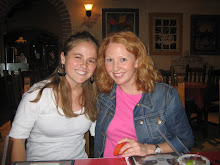








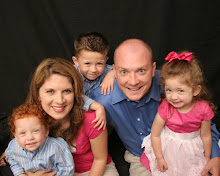
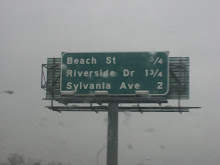

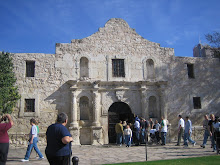
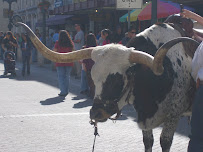

No comments:
Post a Comment